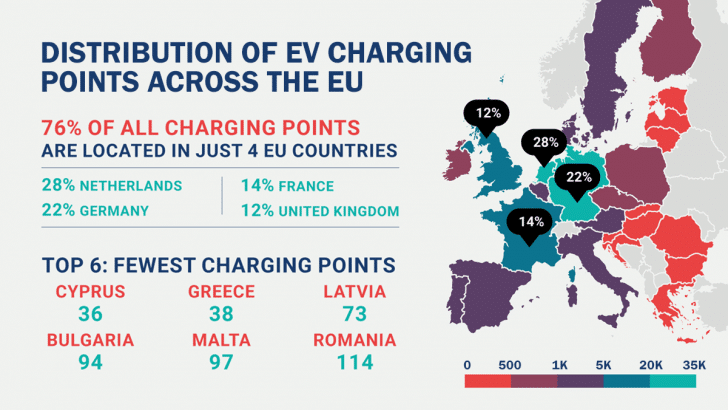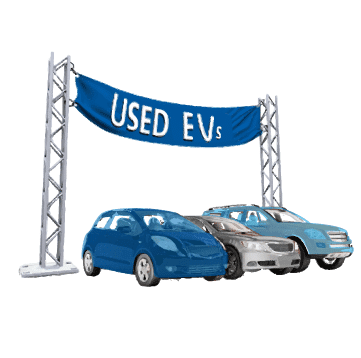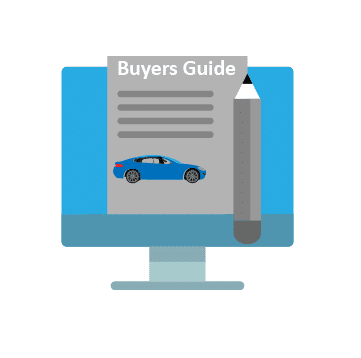TOP EV NEWS #1 – TWO MILLION CHARGING STATIONS REQUIRED
In the run-up to the vote by Members of the Europian Parliament on the 10th of July that would support a 50% reduction in emissions by passenger cars and commercial vans by 2030 lobby groups for the automotive sector came out guns blazing against the proposal. The draft law adopted in November 2017 set a 30% reduction in CO2 emissions from cars and vans, which some see as weak, therefore the proposed increase to 50%. Europe needs to agree on measures to reach its Climate targets agreed on to at the 2015 Paris Climate conference.
The European Automobile Manufacturers Association (ACEA) brought out a number of reports over the last couple of weeks to show that the proposed targets are unattainable. The latest reports backed by a study named “Making the Transition to Zero-emission Mobility” warns that a shortage and balanced distribution of charging stations is putting consumers off making the move to EVs. According to the report to reach a 30% target 2 million charging stations are needed by 2025 while there are currently on 100,000 charging stations in Europe of which 76% are in only four countries (See Cover image provided by the ACEA). To achieve the new 50% target around 700,000 charging stations per year would be required according to the ACEA which would equate to 8.4 million charging points by 2030. The ACEA proposes a 20% CO2 reduction by 2030.
The voting ultimately came out in support of the 30% target and against increasing it to 50%. Clean vehicles manager of NGO Transport & Environment (T&E), Julia Poliscanova said:
“Today’s MEPs opinion means that the industry can keep selling diesel cars in Europe while developing and manufacturing the cars of the future elsewhere. European automakers are investing seven times more in electrification in China than in Europe. This is the real risk to European jobs and competitiveness. The ball is now in the leading environment committee’s court. MEPs should correct the course and set ambitious goals that will reduce drivers’ fuel bills, cut emissions and ensure investment in the technologies of the future happens in Europe.”
The comment by Mrs. Poliscanova is made in relation to the fact that European carmakers spend seven times more on EV tech development in China than locally. Next steps for the draft law is a vote by the European Parliaments top environment committee in September after which it will go to plenary in October 2018.
TOP EV NEWS #2 – CUTS TO EV SUBSIDIES IN CHINA
Automotive News China reported that the Chinese Government is looking at further cuts to its subsidy policy according to insiders. Changes to the EV subsidy policy are expected as its widely expected that incentives for EVs will fall away at the start of the next decade. In 2017 the Chinese Government spent $1 billion on EV subsidies. What is interesting about the proposed changes though is that the Chinese Government is forcing auto manufacturers to improve their technologies as a way to become the world leader in the electric and autonomous cars in accordance with its 20125 “Made in China Strategy”. Insiders hinted that from 2019 EVs should have a minimum range of 200km (125 miles). To see the current EV subsidy requirements click here.
TOP EV NEWS #3 –EUROPEAN AUTOMAKERS SCRAMBLE FOR CHINA
I mentioned in Week 27 that European automakers are spending seven times on EV development in China than locally, of which proof is abundant this week.
BMW took advantage of the recent relaxation of ownership restrictions on international automakers in Chinese ventures. The German automaker is set to be the first majority foreign-owned car company in China. Although no specifics were announced it is rumored that BMW will up its stake in BMW Brilliance Automotive (BBA) to 75%. Stocks for Brilliance Automotive trading on the Hong Kong Exchange dropped over 12.5% on the back of the news. Brilliance stock dropped a further 2.8% at the end the week when BMW and Great Wall Motors announced a 50/50 JV to build the new Mini EV. The EV specific JV will be capitalized with $760 million (5.1 billion yuan) and have a capacity of 160,000 units at a plant in Jiangsu Province. The JV is named “Spotlight Automotive Limited”, which sound like a bad Google translation from Mandarin.
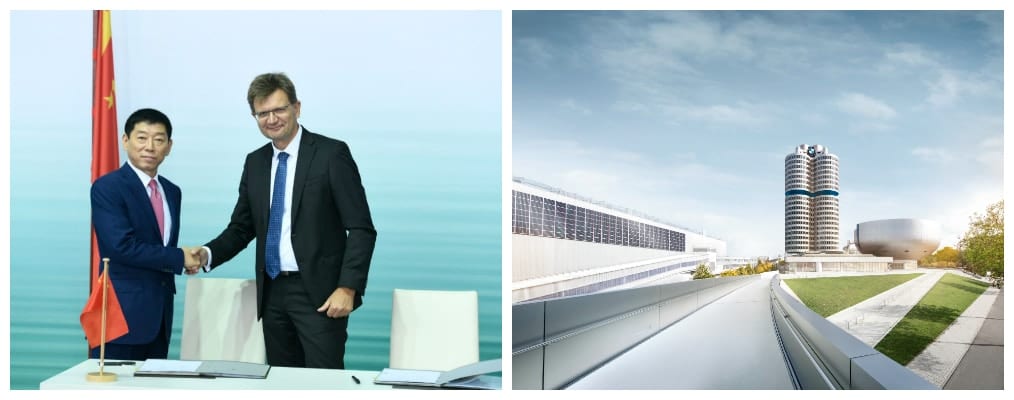
During a visit by China’s Prime Minister Li Keqiang to Germany BMW Group and Brilliance Automotive signed a long-term framework agreement to further expand the BBA JV. According to the agreement, the JV will increase the capacity of its plants at Tiexi and Dadong in Shenyang, Liaoning Province to 520,000 by 2019.
Providing further clarity on BMW’s announcement at the Beijing Auto Show that the new BMW iX3 EV SUV would be produced in China. Harald Krüger, Chairman of the Board of Management of BMW AG said at the signing:
“Today’s signing represents a new chapter in the success story of our BMW Brilliance Automotive joint venture. Our agreement sets a long-term framework for our future in China – a future involving continued investment, further growth and a clear commitment to the development and production of electric vehicles. The next chapter of our cooperation has the potential to go beyond our existing motto – in China, for China. The all-electric BMW iX3, produced by BBA from 2020, will find customers around the world.”
The closer German Sino relationship that is forming due to the alienation of the USA does not spare BMW’s models exported from the US-based Spartanburg, S.C plant where the X5 xDrive 40e is assembled. BMW announced this week that it would not be able to absorb the 25% penalty tariff enforced on US imports to China from the 6th of July 2018.
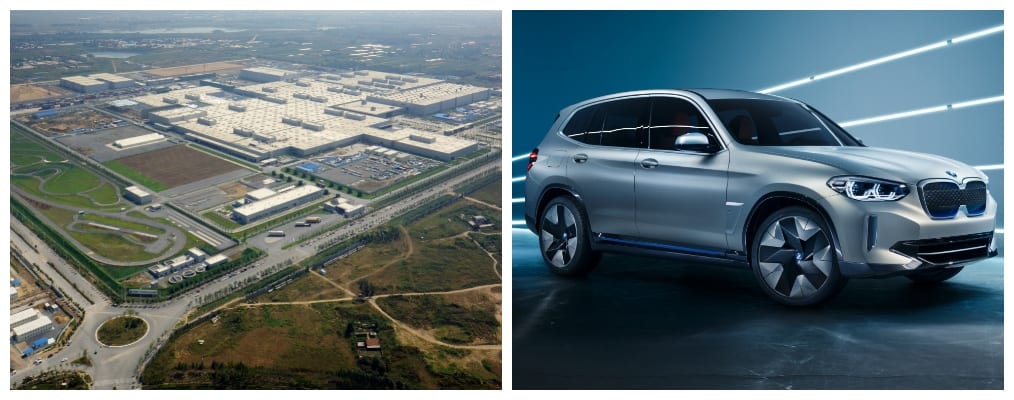
Volkswagen is positioning its SEAT brand in China. The German auto group, SEAT, and its Chinese partner JAC agreed that SEAT will acquire a shareholding by 2021 in the VW JAC JV at a signing in the presence of German Chancellor Angela Merkel and Chinese Premier Li Keqiang. The three companies will set up an R&D center for developing electric vehicles, connectivity and autonomous driving technologies by 2021. The JV aims to develop its own BEV platform.
Volkswagens China activities did not stop here as it signed Memoranda of Understanding with FAW and the China Intelligent and Connected Vehicles Research Institute (ICV). The MOU’s will result in two JVs with FAW focusing on charging infrastructure and charging-related services, as well as intelligent and connected vehicle services. The ICV MOU sets an environment for the entities to jointly develop China-specific smart technologies and corresponding regulatory standards, in pursuit of greater connectivity and autonomous driving. Reports also emerged that Volkswagen is in talks to increase its stake in the 60/40 FAW/VW JV FAW-Volkswagen Automotive Co for which it has the blessing of the Chinese Government.
TOP EV NEWS #4 – UK ROAD TO ZERO
The UK Government published its “Road to Zero Strategy” this week. The strategy sets out its proposals to achieve its 2030 emission reduction targets. In 2017 the Government announced its “Air Quality Plan” by which it sees the end to the sale of combustion vehicles. The Road to Zero Strategy is equally aggressive compared to the country’s peers. In accordance with the proposal, the UK plans for low emission car sales of between 50% and 70% and 40% for commercial vans by 2030. The plan is also designed to support its Industrial Strategy, putting the country at the forefront of mobility disruption by leading the industries of the future and building the UK’s competitiveness in the face of major global economic trends. The plan tasks the UK Government to support the low emission sector through a massive roll-out of infrastructure. The Road to Zero Strategy is technology neutral and does not speculate on which technologies might help to deliver the government’s 2040 mission.
TOP EV NEWS #5 – TESLA SIGNS DEAL FOR SECOND PLANT
After years of speculation, Tesla penned an agreement with the city of Shanghai to build a 500,000 unit plant, its first outside of the USA and large by any standards. The final capacity of 500,000 would be achieved in five years after construction on the plant begin with the first vehicles to roll off the assembly line within two years of the start of construction in early 2019. Analysts were quick to point out that Tesla does not have enough free cash to construct the plant estimated to cost upwards of $5 billion according to Alex Webb of Bloomberg. Based on statements by the Shanghai Government it is expected that it would assist with funding the plant and start lifting restrictions on foreign ownership ASAP. The plant will be wholly owned by Tesla and the City of Shanghai’s largest foreign-owned project.
TOP A-EV NEWS FROM PAST WEEK
Daimler and Bosch announced that it selected California as the pilot site for its first self-driving test fleet. The pilot project will demonstrate how mobility services such as car sharing (car2go), ride-hailing (mytaxi) and multi-modal platforms (moovel) can be intelligently connected to shape the future of mobility. In addition, the partners have decided on the US technology company Nvidia as the supplier of the artificial intelligence platform as part of their control unit network. Furthermore, In China Daimler become the first international car manufacturer to receive a permit to test Level 4 autonomous vehicles in Beijing. Earlier BMW achieved the same status in Shanghai. To qualify for the license, Mercedes-Benz vehicles equipped with additional technical applications from Baidu Apollo undertook extensive testing at the National Pilot Zone (Beijing and Hebei) for Intelligent Mobility, with test drivers receiving rigorous automated driving training.
Hyundai and Baidu this week announced the signing of a memorandum of understanding (MOU) for Internet of Vehicles (IoV) services. According to the MOU the partners will co-develop connected car service that provides a wide range of in-car content based on big data, maps, AI, and portal services. Hyundai Motor Group will embed Baidu’s Xiaodu In-Car OS in its production cars and jointly advance in-vehicle voice recognition services based on Baidu’s natural language processing and Hyundai’s noise cancellation technologies.
BMW joined Chinese tech-giant Baidu’s opensource autonomous driving platform, Apollo. BMW will be a board member on the Apollo program.

LATEST IN EV DATABASE AVAILABLE IN OUR SHOP
No Results Found
The page you requested could not be found. Try refining your search, or use the navigation above to locate the post.

